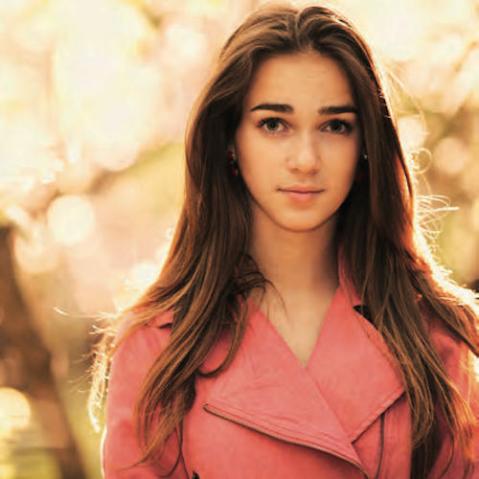Demystifying your camera's focus modes

Making sure that the focus of your photo is tack-sharp is so important that camera manufacturers have invented all manner of different focusing modes to help photographers get it right. Unfortunately, with so many to choose from, they can be a little overwhelming when you start out. There is, however, a handy guide in Haje Jan Kamps’ Introduction to Photography.

One-shot auto-focus
One-shot automatic focus is what most people think of when they think “auto-focus.” In this mode, when you press the shutter button half way, the camera attempts to focus on the subject your camera is pointed at. When it finds it, the camera “locks” on to it until you either take the photo, or you release the shutter button and half press it again.
One-shot auto-focus is great for most subjects that don’t move a lot, for example portraits and still lifes, and some street and travel photography.
Continuous auto-focus
Continuous auto-focus (also known as “continuous Servo” or just “Servo” focusing) is a mode you find on many advanced cameras. Instead of “locking” the focus (like one-shot auto-focus), it continuously tries to keep your subject sharp.

Continuous auto-focus is best when you are taking photos of quick-moving subjects that come closer and move away from you a lot, for example sports photography, or if you’re photographing children or wildlife running about.
‘Intelligent focus’
Canon calls it AI focus, Nikon and Sony call it AF-A mode, but it works the same way: “Intelligent Focus” is the half-way house between the two previous modes. For subjects that don’t move, the camera uses one-shot autofocus, but if the camera detects movement it switches automatically to continuous autofocus instead and tracks the subject.

Generally, the AI Focus mode on most cameras isn’t quite good enough to rely on all of the time, so if you know what you want, it’s best to select one-shot or continuous auto-focus yourself.
Manual focus
Manual focus is what it says on the tin: the camera leaves the focusing up to you. On most cameras, when you are focusing manually it will tell you when it thinks your subject is in focus, either by making a beeping noise, activating a focus confirmation light, or flashing the focusing point that the camera believes is in focus.
Manual focus is best for when you’re photographing macro subjects.
Using live view to make the most of manual focus
If you are using manual focus, particularly for stationary subjects, it’s often a good idea to use live view, and, if your camera supports it, use the “manual focus assist” feature. This means that instead of showing you the full frame you’re about to photograph, it shows an enlarged view of part of the image.

Using live view and the manual focus assist makes it a lot easier to focus precisely. It is incredible how big a difference small adjustments to the focus ring on your camera’s lens can make. In particular, when you are taking macro photos, the live view technique can be very useful. Many cameras also superimpose grids of varying kinds over the image when in live view mode, such as one showing you the rule of thirds, which can be very useful.
In The Ilex Introduction to Photography, Haje Jan Kamps guides you through the process of turning your everyday snapshots into great pictures that you can be proud of. It doesn’t matter if you shoot with a smartphone or a top-of-the-range dSLR, this book has everything in it that you need to know!
[one_whole boxed=”true”]
 The Ilex Introduction to Photography, by Haje Jan Kamps
The Ilex Introduction to Photography, by Haje Jan Kamps
£5.99 Download the PDF now!
This PDF version retains the styling of the original print book.
RRP for print edition: £14.99
[button color=”Accent-Color” size=”small” url=”https://www.ilexinstant.com/product/the-ilex-introduction-to-photography/” text=”Digital Edition”] [button color=”Accent-Color” size=”small” url=”http://www.amazon.co.uk/dp/1781579865?tag=ilexpresscom-21&camp=1406&creative=6394&linkCode=as1&creativeASIN=1781579865&adid=0QKBET521Q8C31RD62Z9&&ref-refURL=http%3A%2F%2Fwww.ilexinstant.com%2Fproduct%2Fthe-ilex-introduction-to-photography%2F” text=”Amazon UK (Print)”]
[button color=”Accent-Color” size=”small” url=”http://www.amazon.com/The-Ilex-Introduction-Photography-whatever/dp/1781579865/ref=as_li_qf_sp_asin_til?tag=ilexinst-20&linkCode=w00&creativeASIN=1781579865″ text=”Amazon USA (Print)”]
[/one_whole]





